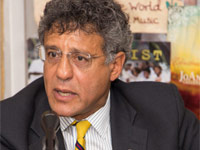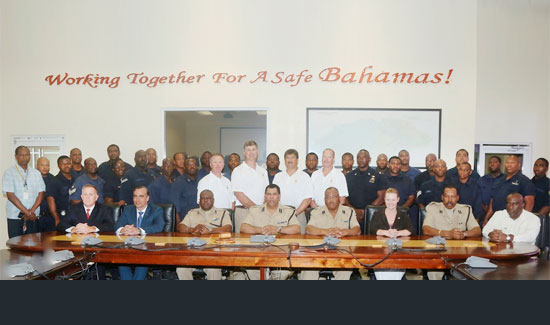Consultation with private enterprises has started as the Bahamas negotiates membership in the World Trade Organisation (WTO). WTO chief negotiator, chartered accountant Raymond Winder, said there may have to be changes in the Government’s revenue structure.
Mr Winder met with representatives from printing, publishing, packaging, manufacturing, beverages and furniture operations last week. Meetings with Family Island businesses are planned His team includes the Ministry of Finance’s Director of Economics Simon Wilson and economist Karla Wells.
Minister of State for Finance, Zhivargo Laing, laid out the Bahamas’ case for membership in WTO when he appeared before the Working Party responsible for the Bahamas’ accession, on September 14. Mr Laing emphasised the Government’s commitment to WTO membership and its desire to conclude negotiations “within a timely period and in a manner that enhances our natural development and positively supports our further integration into the global economy.”
WTO is the only organisation responsible for monitoring and establishing rules for trading in the international community. It comprises 153 members, representing more than 97 percent of total world trade. The Bahamas is the only CARICOM country not a member.
In meeting with Bahamian enterprises, Mr Winder said he wanted to understand their issues and “give them an avenue to provide us with the kind of information that would put us in the best possible position to negotiate their concerns.”
Negotiations will start with those countries The Bahamas does most of its business with – the United States, Canada and Europe.
“We will basically share with them our current regime, what we would like to propose in our offer to WTO, and get a sense from them as to their concerns and their issues,” said Mr Winder.
“Then begins the process of actually preparing a goods offer of what The Bahamas wants to present to the wider audience of those who are a part of WTO.
“This process will be ongoing in terms of receiving and responding to questions from those countries.”
Mr Winder told of possible tariff changes that will affect some Bahamian businesses.
“We want to get a sense from them as to the areas that they can assume or tolerate some changes and those areas where they will not be able to tolerate any changes at all,” he said.
“We want to share this information with Government because all changes in tariff has some impact on the revenue base of the country.”
Some companies may have to experience some aspects that may not be positive to their businesses, he said.
“However, our decisions will be made with the broader base of all Bahamians involved. “As we weigh the differences between the various groups, that will be the primary basis under which we will make our final determination as to what is best for The Bahamas.”
Tariff, he said, is always viewed as “one of those sticky points used by countries around the world to prevent products from coming into their country.
“As part of our negotiating process, tariff has been a revenue generator for the Bahamas while we do not have a major manufacturing sector.
“Our tariff has never really been used as a basis to prevent products from coming into The Bahamas but as a means for Government to collect revenue.
“And so that is a transitional point that The Bahamas will have to take into consideration because tariff is viewed by other countries as a barrier to trade.
“They don’t accept the principle which we bring to the table that it is our major source of revenue.”
It is the Government’s position to try to retain as much as possible aspects of the tariff structure, he said.
“As we have to make changes, then Government will have to make alternative arrangements.
“I understand the Government is in the process of looking into alternatives in terms of increasing the revenue,” said Mr Winder.
By Gladstone Thurston
Bahamas Information Services



